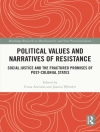Many biological studies on insect management do not consider economics or fundamental economic principles. This book brings together economists and entomologists to explain the principles, successes, and challenges of effective insect management. It highlights the importance of economic analyses for decision making and the feasibility of such approaches, and examines integrated pest management (IPM) practices from around the world with an emphasis on agriculture and public health.
The book begins by establishing an economic framework upon which to apply the principles of IPM. It continues to examine the entomological applications of economics, specifically, economic analyses concerning chemical, biological, and genetic control tactics as well as host plant resistance and the cost of sampling and is illustrated with case studies of economic-based IPM programs from around the world.
Об авторе
Rangaswamy Muniappan, Program Director of the Integrated Pest Management Collaborative Research Support Program (IPM CRSP) at the Office of International Research, Education, and Development at Virginia Tech (U.S.), has specialized in economic entomology, biological control, and integrated pest management research in the tropics for over 45 years. He is an emeritus member of the International Organization for Biological Control and is currently responsible for managing the IPM CRSP and coordinating with USAID and project partner institutions in the United States and developing countries in Asia, Africa, and Central and South America. He has over 300 research and extension publications.












